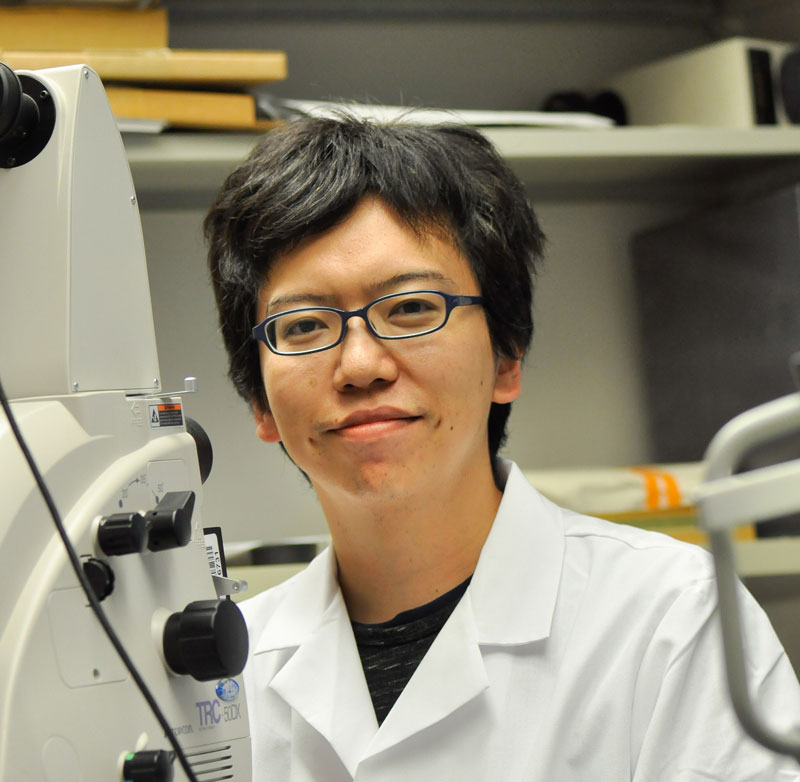Fukuda Receives Prestigious Awards Given to Outstanding Japanese Researchers
Dr. Shinichi Fukuda, postdoctoral fellow in the laboratory of Dr. Jayakrishna Ambati at the University of Kentucky's Department of Ophthalmology and Visual Sciences has received two prestigious awards to advance his research of dry macular degeneration.
.
The "Postdoctoral Fellowship for Research Abroad of Japan Society for the Promotion Science," presented by the Japan Society for the Promotion Science, is a two-year award given to foster highly capable researchers with wide international perspectives. It gives excellent young Japanese researchers an opportunity to carry out long-term research at an overseas university or research institution.
The "Medical Research Encouragement Prize of the Japan Medical Association," presented by the Japanese Association of Medical Sciences, is awarded every year to 15 biomedical researchers who have carried out medical research with promising future prospects in the fields of basic medicine, public health and clinical medicine. The prize is recommended by the chairpersons of committees of the Japanese Association of Medical Sciences, heads of medical research laboratories of graduate schools or the deans of the faculty of medicine of universities, the directors of university hospitals, the heads of other relevant institutions and the presidents of prefectural medical associations.
Team members in Ambati’s laboratory have made groundbreaking discoveries related to the understanding of the molecular basis of macular degeneration — a disorder that affects 150 million people worldwide — to hasten the eradication of blindness. Numerous studies on angiogenesis, innate immunity, noncoding RNAs and retrotransposoris have been published by them in highly prestigious scientific journals.
Previous studies have shown that there is an accumulation of toxic Alu repetitive RNA molecules in the retina of patients with dry macular degeneration. While there exist treatment options for the wet form of macular degeneration, there is presently no treatment for the dry form. Fukuda's investigations surround the molecular dynamics of these Alu molecules in the retina with the hope of developing therapies in the future.
Media Contact: Ann Blackford at 859-323-6442 or ann.blackford@uky.edu

dr__shinichi_fukuda-2.jpg